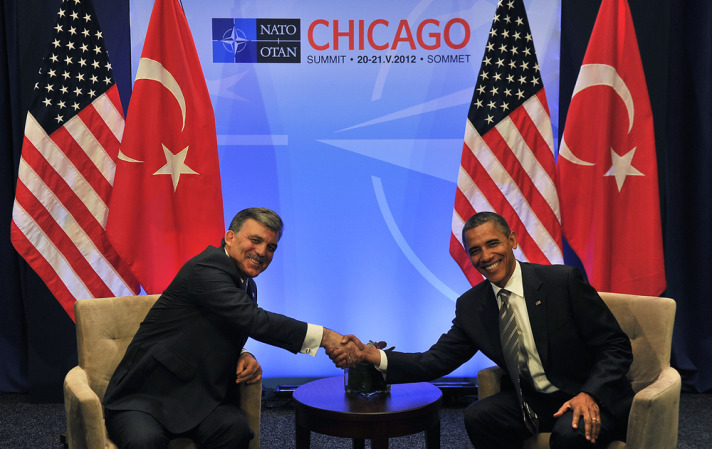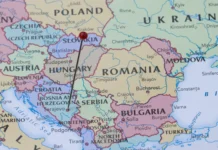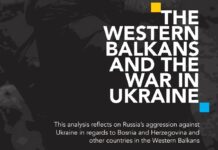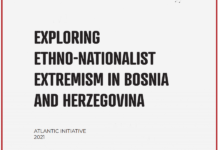Since Turkey joined NATO on February 18th 1952, the organisation has remained the lynchpin of the nation’s security policy, protecting the country from internal and external threats while constituting the cornerstone of Euro-Atlantic integration and co-operation.
Although the relationship was not without hiccups — most notably over Cyprus — it nonetheless fostered peace and stability. In the post-Cold War world, the role of NATO and Turkey’s position within it has changed, as both parties have had to adapt to new security challenges and keep the Alliance relevant and efficient.
In addition to traditional security threats, uncertainty and non-traditional threats — including terrorism, organised crime, drug-trafficking, weapons proliferation, migration and piracy — have changed the security environment and the nature of the Alliance.
Enter the Balkan countries — in 2004 it was Bulgaria, Romania, Slovakia and Slovenia, followed by Croatia and Albania in 2009.
Waiting now on the doorstep is Macedonia. Though Greece has worked actively to block Skopje’s bid — most famously at the Bucharest summit in 2008, over its bilateral name dispute with Macedonia — prospects appear to be improving.
This month, NATO heavyweight Germany sent a clear signal of support, when Chancellor Angela Merkel met for an hour with Macedonian Prime Minister Nikola Gruevski in Berlin.
At a joint news conference later, Merkel called for an end to obstruction.
“The rules are clear – undoubtedly the International Court of Justice (ICJ) has reached a verdict [against Greece] that is a success for the Macedonian government. I personally believe that NATO accession is crucial and that name talks with Greece must continue in a bid for a resolution to be found,” Merkel said.
Media reports also noted that she repeatedly referred to Macedonia by its constitutional name. Ties between Greece and Germany have grown strained in recent weeks over the latest bailout package Athens has secured.
For his part, Gruevski reiterated that Macedonia has met all criteria for NATO membership.
“Macedonia as a nation has been contributing wherever NATO has required us to do so. Our troops are taking part in NATO-led missions and our lawmakers have never voted against that. Macedonia is a fifth contributing nation according to the number of troops deployed in Afghanistan and half of the country’s budget is spent on our efforts in Afghanistan. Still, we are hampered to become a member as a result of a dispute with neighbouring Greece over our name, identity and language,” Gruevski was quoted as saying by MIA.
Looking ahead to NATO’s May summit in Chicago, he said Macedonia has “reasonable expectations” given the country’s contribution in Afghanistan and in light of the ICJ ruling in Macedonia’s favour.
Daniel Serwer, a professor at Johns Hopkins School of Advanced International Studies, told SETimes, “Macedonia is fully qualified but Greece is still blocking, as it did at Bucharest. This is an injustice that should be fixed in Chicago, in accordance with the International Court of Justice.”
Podogorica, Serwer added, has reason for optimism as well. “Montenegro is not quite ready — it needs to finish its action plan but should get some positive vibes at Chicago.”
Turkey showed its readiness to join NATO by contributing nearly 5,000 young men to UN operations during the Korean War — suffering over 700 casualties and earning the trust and respect of allied armies. Its inclusion set off the modernisation of its military along Western lines.
Throughout the Cold War, Turkey played a crucial role in containing the Soviet Union, and its NATO membership acted as an anchor solidifying Turkey’s Western orientation.
“NATO membership gave Turkey a Westernised identity and provided her with a say on European security. In return, Turkey assumed the defence of the southeastern part of NATO against the soft underbelly of the Soviets,” says Retired Lieutenant General Şadi Erguvenc, who served as a Turkish military representative to NATO.
From Turkey’s perspective, the enlargement of NATO, whether through the entrance of new member states or the establishment of partnerships in the Mediterranean, Gulf states, and the states of the former Soviet Union, all contribute to the consolidation of stability and security within the Euro-Atlantic community and beyond.
“From the perspective of international security, it is of utmost importance to leave no country or ‘dead region’ outside the security and defence umbrella of the Alliance,” explains Professor Hasret Comak, vice-rector of Kocaeli University and an expert on NATO enlargement at the Wise Men Centre for Strategic Studies (BİLGESAM).
“The fact that there are countries wishing to be NATO members proves that it is still a prominent alliance meeting the security and defence needs of the countries,” said Erguvenc.
Source: SetTimes.com /(03. March 2012.)








